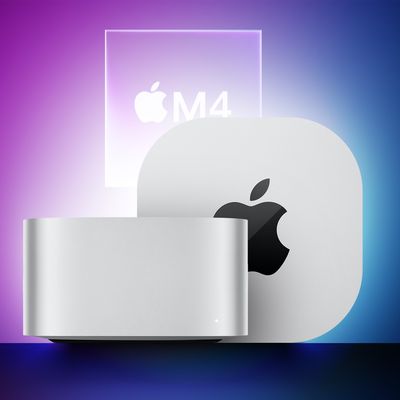Here's How Fast the 9-Core M4 Chip is Based on Early Benchmark Result
An alleged Geekbench 6 benchmark result for the lower-end version of the M4 chip with a 9-core CPU surfaced over the weekend, providing a first look at how it performs compared to the higher-end M4 chip with a 10-core CPU.

The result indicates that the 9-core M4 chip is around 10% slower than the 10-core variant in terms of multi-core performance. While that outcome might seem obvious at first glance, the 9-core variant of the chip has three performance cores, instead of four in the 10-core variant, so this result was not guaranteed.
Assuming that the Geekbench 6 listing is accurate, the 9-core M4 chip is still around 13% faster than the M3 chip for multi-core performance, and up to 35% faster than the M2 chip in the previous-generation iPad Pro.
Here's how the 9-core M4 chip stacks up in multi-core Geekbench 6 results:
- M4 chip (10-core CPU): ~14,600
- M4 chip (9-core CPU): ~13,000
- M3 chip (8-core CPU): ~11,600
- M2 chip (8-core CPU): ~9,600
The new 11-inch and 13-inch iPad Pro models are equipped with a 9-core M4 chip when configured with 256GB or 512GB of storage, while models with 1TB or 2TB of storage are equipped with a 10‑core M4 chip. Both variants have a 10-core GPU.
For reasons unclear, the Geekbench 6 listing shows the iPad Pro with the 9-core M4 chip as running iPadOS 17.6, whereas all results for the 10-core model have shown iPadOS 17.4 so far. The first beta of iPadOS 17.6 will likely be made available for testing later this month, following the upcoming release of iPadOS 17.5.
The new iPad Pro models launch on Wednesday.
Thanks, Michael Burkhardt!
Popular Stories
Leaker Sonny Dickson is back today with a new dummy unit image showing all four iPhone 16 Pro color variants, including the rose gold or "bronze" unit that replaces Blue Titanium in the existing iPhone 15 Pro models. The iPhone 16 Pro models are expected to come in black, white or silver, gray or "Natural Titanium," and a rose or rose gold color replacing Blue Titanium, according to Apple...
Multiple rumors have suggested that the iPhone 16 models are going to have an all-new button that's designed to make it easier to capture photos when the devices are held in landscape mode. Apple calls the button the Capture Button internally, and it is going to be one of the most advanced buttons that's been introduced to date with support for multiple gestures and the ability to respond to ...
Apple typically releases its new iPhone series in the fall, and a possible September 10 announcement date has been floated this year, which means we are just one month away from the launch of the iPhone 16. Like the iPhone 15 series, this year's lineup is expected to stick with four models – iPhone 16, iPhone 16 Plus, iPhone 16 Pro, and iPhone 16 Pro Max – although there are plenty of design...
Apple's iPhone 16 series is expected to debut in September 2024. This release follows Apple's trend of introducing new iPhone models annually in the fall. While the exact date has yet to be officially confirmed, the day of Tuesday, September 10 has been rumored as a possible announcement date, and September has traditionally been the month when Apple unveils its latest smartphone innovations. ...
Apple is moving forward with its project to develop a tabletop robotic device, according to Bloomberg's Mark Gurman. Subscribe to the MacRumors YouTube channel for more videos. The device would feature a large iPad-like display mounted on a "thin robotic arm" that would allow the display to tilt and up and down and rotate a full 360º, and it would serve as a "smart home command center," a...
It's almost September, but Apple still has multiple new product launches planned for 2024. New iPhone 16 models and Apple Watches are coming in September, and we're also going to get at least three Mac updates with M4 chips this year, according to rumors. Here's what's on the horizon. MacBook Pro Apple plans to refresh both the 14-inch and 16-inch MacBook Pro models, adding M4 chips. The ...
T-Mobile was fined $60 million by the Committee on Foreign Investment in the US (CFIUS) for negligence surrounding data breaches, reports Reuters. CFIUS penalized T-Mobile for failing to prevent or disclose unauthorized access to sensitive customer data. When T-Mobile merged with Sprint, it signed a national security agreement with CFIUS, which is what led to the fine earlier this year....






















